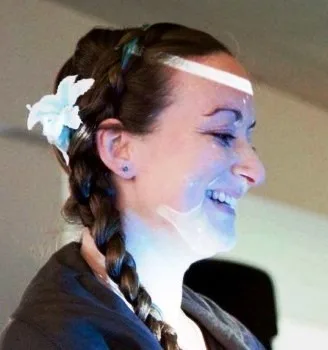CW: This article contains references to suicide and suicidal behaviour.
Researchers who are developing counter-narratives to deficit-based accounts of autism discuss the ‘autistic advantage’ (Russell et al, 2019). Amy Grant and Helen Kara (2021) take this idea of there being an autistic advantage and apply it to qualitative research. I am currently an autistic person doing qualitative research, so I wonder… Am I at an advantage?
‘Unsurvivable’ workplace?
First up, it is important to note that being autistic does not give you a wholesale advantaged position in research, nor in life as a whole. Within academia, as with the rest of the world, we meet working environments created on the presumption of a neurotype that we do not own. This places us under an enormous amount of stress. Within academia, further stress is added as we encounter ‘rhetorical violence’ (Yergeau, 2013) within our reading. I can imagine the word violence there might feel a bit strong to some, but to me, as someone who has physically recoiled from a paper, winded by its words and the sudden realisation that the world is a place where academically gifted people think it is okay to say things like this, the word violence aptly captures that feeling of being hit by the words.
I have been advised by neurokin (people with whom I share a neurotype) who have experience of academia that as a workplace it is unsurvivable for autistic people. Again, the word ‘unsurvivable’ might read as dramatic, but to me, as someone experiencing the hidden pressures, it does not seem so extreme. As Walker (2019) states, ‘the vast majority of autistics in the modern world are traumatized by extensive lifelong histories of abuse, rejection, bullying and unremitting pressure to suppress their natural selves’. We are something like seven and a half times more likely to die by suicide (Grace, 2021) than non-autistic people. And of the various demographics of autistic people, women, and those with low support needs (i.e. me), are the most at risk of death by suicide (Cassidy et al, 2014; Gillberg, 2002; Huguet et al, 2015; Kirby et al, 2019; South et al, 2020).
Making academia survivable: autistic advantages
My environment is made survivable by supervisors who take care to understand the autistic experience, and by leadership within the university I work for being willing to make adjustments to what they provide in order to make things more accessible to autistic people. Our difference is often described as invisible, and the barriers we face are all the more invisible, so it takes a concerted effort to recognise our reality. I think it helps that I work within inclusive research where people are used to considering these things in their work. Researchers point out that considering autistic strengths and weaknesses to be dichotomous is a mistake, and this is a good example of that. One of my biggest risk factors with regards to death by suicide is my ability to mask, i.e. to perform as if I am not autistic. This is an ability I have developed through careful observation of a particular social culture, i.e. I learned how to do it by doing my own brand of qualitative research. I have practiced this craft long before taking it up as a topic of study, so I have a head start, an advantage
Deep focus
Another advantage I have is that my brain is capable of deep focus. I can only use this advantage if circumstances allow, so for example I try to take lots of long train journeys because on a seven-hour train journey there are very few interruptions, no one passes by your desk (except for the person selling refreshments), you can decline calls because of poor reception on the moving train, there is no laundry to be done, no children to be collected from school. For the first 45mins of the journey I get into that place of focus and then 6hrs 15mins later I pop out having done a chunk of work that might take the average person a couple of days to do. A clear advantage? Well not so clear, because at my desk with an email coming in from the student’s union, a message from my husband shouted up the stairs to me, a child coming in to show me a picture, I can spend entire days within that first 45mins of trying to get to a place of focus, and it feels like constantly slipping down a sandy bank you are trying to climb.
There are a lot of these dualities: places where something distinctive about the autistic mind can act as a strength, or hold you back as a weakness.
'Uniquely unique' brains
My personal favourite autistic advantage within research, and possibly within life, is that we are recognised as having uniquely unique brains (Robertson, 2018). One of the few asset-based tests that have been developed for identifying autistic people focuses on our natural ability to have unusual ideas. Take this example: people are given a paper clip and asked to think of lots of ways to use it; non-autistic people think of a fair few ways, but autistic people go on and on thinking of new and novel ways to use the paperclip. When/if I reach my final viva voce, where they will be looking to see if I have made a unique contribution to knowledge, I’m relying on this particular advantage to see me through here!
Final thoughts
My advice to other autistic PhD students would be to lean into your autism, do not push it to one side (I’ve known people to say things like, “I won’t let being autistic hold me back” – goodness, there is so much to unpick there about internalised ableism). Look at it, it is the mind you have, it is how you work. If you know it inside out then you can use it to enormous advantage and defend yourself against structures and requirements that might disable you.
Further reading for those curious to learn more about this autistic “advantage”:
Cassidy, S., Bradley, P., Robinson, J., Allison, C., McHugh, M., & Baron-Cohen, S. (2014). Suicidal ideation and suicide plans or attempts in adults with Asperger’s syndrome attending a specialist diagnostic clinic: a clinical cohort study. The Lancet Psychiatry, 1(2), 142–147. https://doi.org/10.1016/S2215-0366(14)70248-2
Gillberg, C. (2002). A Guide to Asperger Syndrome. Cambridge University Press. https://doi.org/10.1017/CBO9780511543814
Grace, J. (2021). The Subtle Spectrum. Routledge.
Grant, A., & Kara, H. (2021). Considering the Autistic advantage in qualitative research: the strengths of Autistic researchers. Contemporary Social Science, 16(5), 589–603. https://doi.org/10.1080/21582041.2021.1998589
Huguet, G., Contejean, Y., & Doyen, C. (2015). Troubles du spectre autistique et suicidalité. L’Encéphale, 41(4), 362–369. https://doi.org/10.1016/j.encep.2014.08.010
Kirby, A. v., Bakian, A. v., Zhang, Y., Bilder, D. A., Keeshin, B. R., & Coon, H. (2019). A 20‐year study of suicide death in a statewide autism population. Autism Research, 12(4), 658–666. https://doi.org/10.1002/aur.2076
Robertson, C. (2018). Autism: A view from neuroscience – a CCN public lecture . In Dartmouth. [Accessed on 23/1/23] Available at www.youtube.com/watch?v=2_ A_ Mb0V0g&list=FLvywTRPU1xuE6- wqYqTdoqw.
Russell, G., Kapp, S. K., Elliott, D., Elphick, C., Gwernan-Jones, R., & Owens, C. (2019). Mapping the Autistic Advantage from the Accounts of Adults Diagnosed with Autism: A Qualitative Study. Autism in Adulthood, 1(2), 124–133. https://doi.org/10.1089/aut.2018.0035
South, M., Beck, J. S., Lundwall, R., Christensen, M., Cutrer, E. A., Gabrielsen, T. P., Cox, J. C., & Lundwall, R. A. (2020). Unrelenting Depression and Suicidality in Women with Autistic Traits. Journal of Autism and Developmental Disorders, 50(10), 3606–3619. https://doi.org/10.1007/s10803-019-04324-2
Walker, N. (2019). Transformative Somatic Practices and Autistic Potentials: An Autoethnographic Exploration. California Institute of Integral Studies.
Yergeau, M. (2013). Clinically Significant Disturbance: On Theorists Who Theorize Theory of Mind. Disability Studies Quarterly, 33(4). https://doi.org/10.18061/dsq.v33i4.3876




